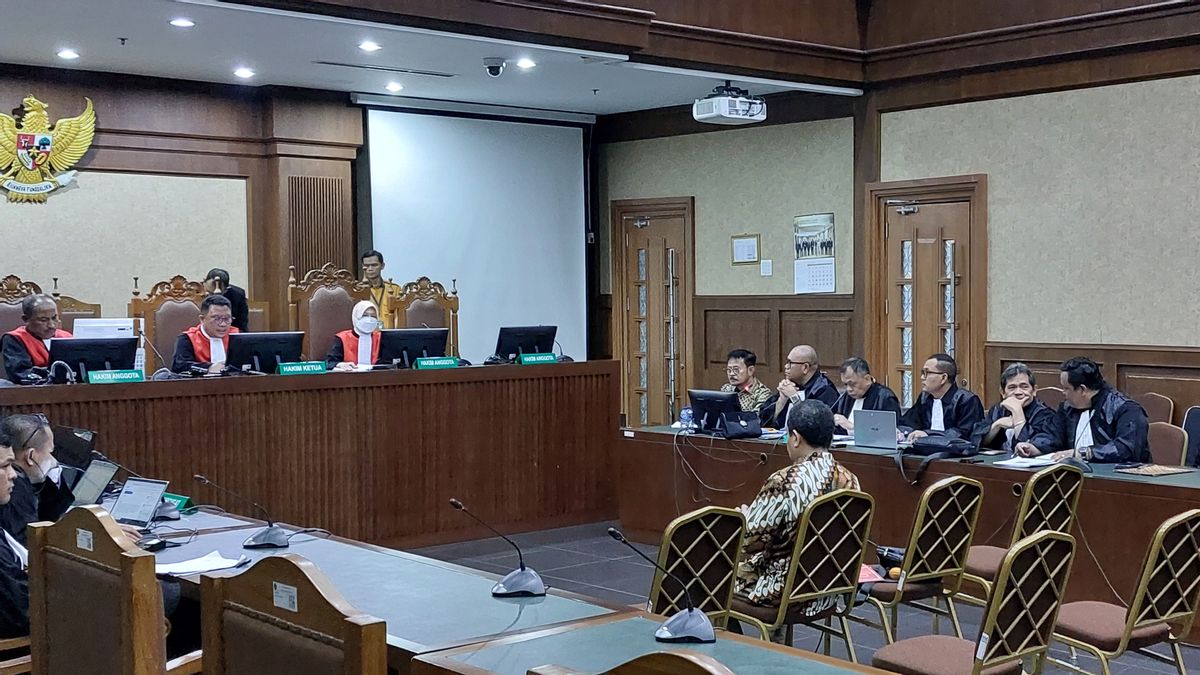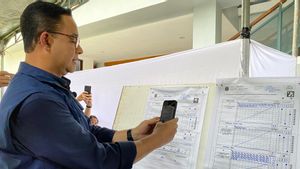JAKARTA - A criminal expert, Prof Agus Surono, assessed that accountability for the actions committed by his subordinates could not be shifted to his superiors.
This statement was made by Agus when presented by the former Minister of Agriculture (Mentan) Syahrul Yasin Limpo or SYL in the trial of the alleged extortion and acceptance of gratuities at the Ministry of Agriculture (Kementan), Wednesday, June 12.
Starting when SYL's legal adviser, Djamaluddin Koedoeboen questioned who should be responsible if the act on the order had been carried out and had legal consequences.
Then, Agus stated that the responsibility of the actions of his subordinates could not be shifted to his superiors. Moreover, his actions are outside orders.
"When the subordinates commit acts outside the orders conveyed by the superior, the responsibility becomes a switch. Changing my intention cannot be then, the responsibility for the actions committed by the subordinates then shifts or moves to be held accountable by the superior because of the boss's orders," Agus said during a trial at the Jakarta Corruption Court, Wednesday, June 12.
In front of the panel of judges, Agus gave an example when a subordinate was ordered by his superior to do A but it was precisely what B did and had legal consequences, so, it was not the responsibility of his superiors.
"So who is responsible? Yes, of course, the subordinates who carried out the B order were not in accordance with the orders of the superior, the opposite was the case," said Agus.
Then, Koedoeboen questioned those who must be responsible if the orders from the leadership were only for the smooth running of the administrative process or improving the performance of certain institutions or institutions. Moreover, the actions taken by subordinates are not known by superiors.
Responding to him, Agus stated that the relationship must be sought, such as whether subordinates commit actions that are not in accordance with the orders of their superiors, or actions that are not based on the orders of their superiors.
This must be proven first in order to determine the party that must be responsible for legal consequences.
"The legal principle is that it is not allowed for an act that is not carried out by someone and then charged by someone who did not do the act. That is the legal principle, now it's just a matter of interpreting it in one of its concrete legal events," said Agus.
SEE ALSO:
The English, Chinese, Japanese, Arabic, and French versions are automatically generated by the AI. So there may still be inaccuracies in translating, please always see Indonesian as our main language. (system supported by DigitalSiber.id)
Most Popular Tags
#Prabowo Subianto #golkar #OTT KPK #Pilkada Dki #online gamblingPopular
27 November 2024, 05:00
27 November 2024, 02:00


















